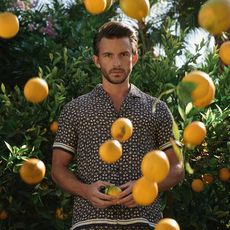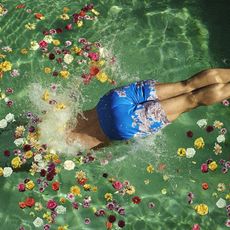PRIDE AND PREJUDICE:TRAVELLING WHILE GAY
From Mykonos nights to mornings in A&E — six men give us the inside story

The parades may be cancelled this year, but at Orlebar Brown we are as proud as ever. So, as World Pride Month draws to its close, we spoke to six men from around the world about their experiences of Pride, gay travel and how they might change the world for the better. Because it’s not all sunshine, travel, happiness and good times out there.
Adam Brown, 55
Brown is the founder of Orlebar Brown.
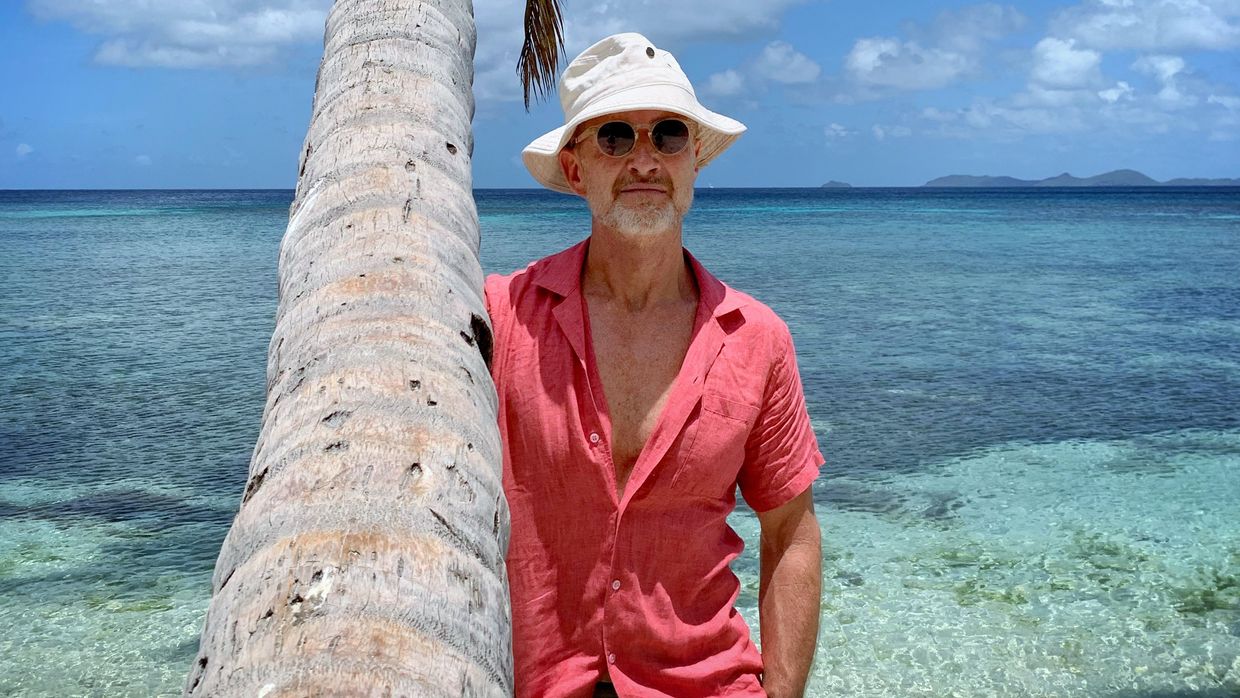
The first gay holiday I ever went on came about because of a row. Admittedly one I instigated. I was staying on the Greek island, Paros, with a friend, but I’d obviously heard about Mykonos and really wanted to be there instead. So, I started a row with her – and then jumped on a ferry. I was about 18 or 19, and I slept on beaches and rooftops for an entire month. It had to be a secret, something illicit.
Back in the late 1980s, gay holidays were all a bit lazy and clichéd. You’d send off for these brochures – there were no websites back then – featuring similar sorts of men doing rather boring things like standing on a jetty or walking down a beach surrounded by other guys who looked exactly the same. It was all just narrow. White, pumped up, shaved, or very heavily moustached. Black people didn’t feature. Asian people didn’t feature. Nowadays, it is just more interesting and integrated. There are still exclusively gay places, of course, but mostly you find gay and heterosexual people in the same bars and clubs and beaches.
Over my lifetime, the world and the gay scene have changed a lot. When I came out, everything was noticeably white. I feel it’s slightly better now, but there is still a long way to go.
Personally speaking, I’ve only had the usual difficult travelling experiences:hotels splitting me up from my partner or giving us single beds. But, these days, I am at a point in my life where I am lucky enough not to have to give much thought to being gay when I’m on holiday. I’ve been out for long enough, and I’ve been able to talk about being gay for long enough, that it isn’t an issue, which is a big change. When I was young, I very much did think about it.
What does Pride mean to me? It’s changed over the years, I suppose. When I was younger, it was different. Today, though, I see it as a time to reflect and take note of how things are changing and what still needs to be done. I mean, there are still careers where if you’re outwardly gay, you’re going to come up against discrimination. There are over 70 countries where it is still illegal to be gay, and in 12 of those, you could be given the death penalty. It is only 30 years since homosexuality was declassified as a disease.
How is that possible? Pride is a good time to think about how grateful and privileged I am, and how much we owe to the people at the Stonewall Riots and all the others who brought about change for the better. What I’d like to see in the future is a continuing journey towards real equality; a movement towards greater learning, and the end to the damaging micro-aggressions that affect BAME gay people in particular.
Anish Patel, 30
Patel is Menswear Editor at Harrods Magazine. He has also worked as an editor at MR PORTER
and the Evening Standard Magazine.
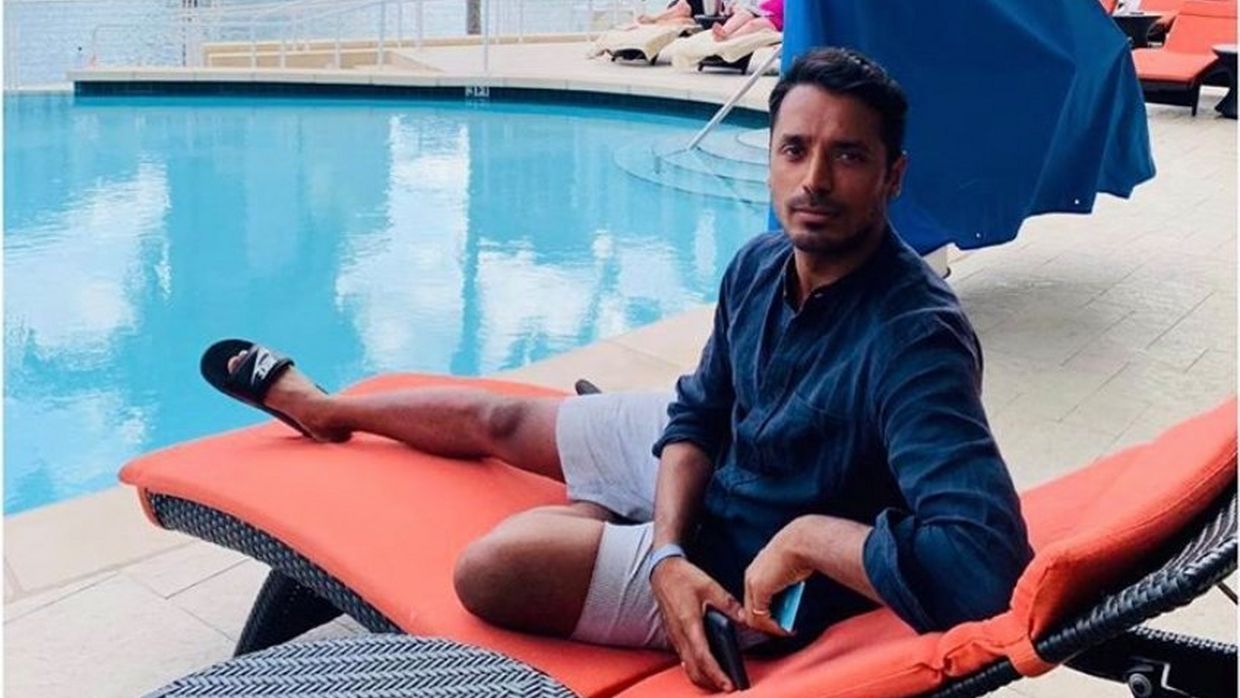
Before my boyfriend George and I book a holiday, we always Google to see what a country’s attitude towards gay people is. The results never stop us going, but they do show us how we need to act when we are there. If we’re going to a more conservative place, we find out whether we need to book two single beds, rather than a double. We were in Bali two years ago, I’d booked under my name, and I don’t think they realised it was two men. When we got to the hotel desk, they said “here are two singles”, and I asked if we could have a double, but they said there weren’t any double rooms available, which was a complete lie because our friends all had them.
I think, as an interracial couple, we stand out a bit more. The fact that I’m a brown man and also that I’m a gay man definitely makes me feel like I’m in the spotlight more. I’ve always felt that.
I’m not sure the world has become any better in the last few years, but I personally have become better at dealing with it. I’ve become less aware of negativity. I’m more comfortable with being gay and being of colour, and I’m proud to be who I am.
What’s happened recently in America has sparked a big conversation about race in the gay community. Black Lives Matter is such an important thing, and something I’m very passionate about as well. People in the community who are Black have a tougher time and face greater discrimination – that absolutely has to change. There need to be equal rights for people of colour within the gay community.
Personally speaking, I come from an Indian background which is quite conservative. Being gay is still very taboo within my culture. I think people of colour need to have conversations within their communities about gay rights and what needs to change.
Eric Rutherford, 52
Rutherford is a model, activist and storyteller.
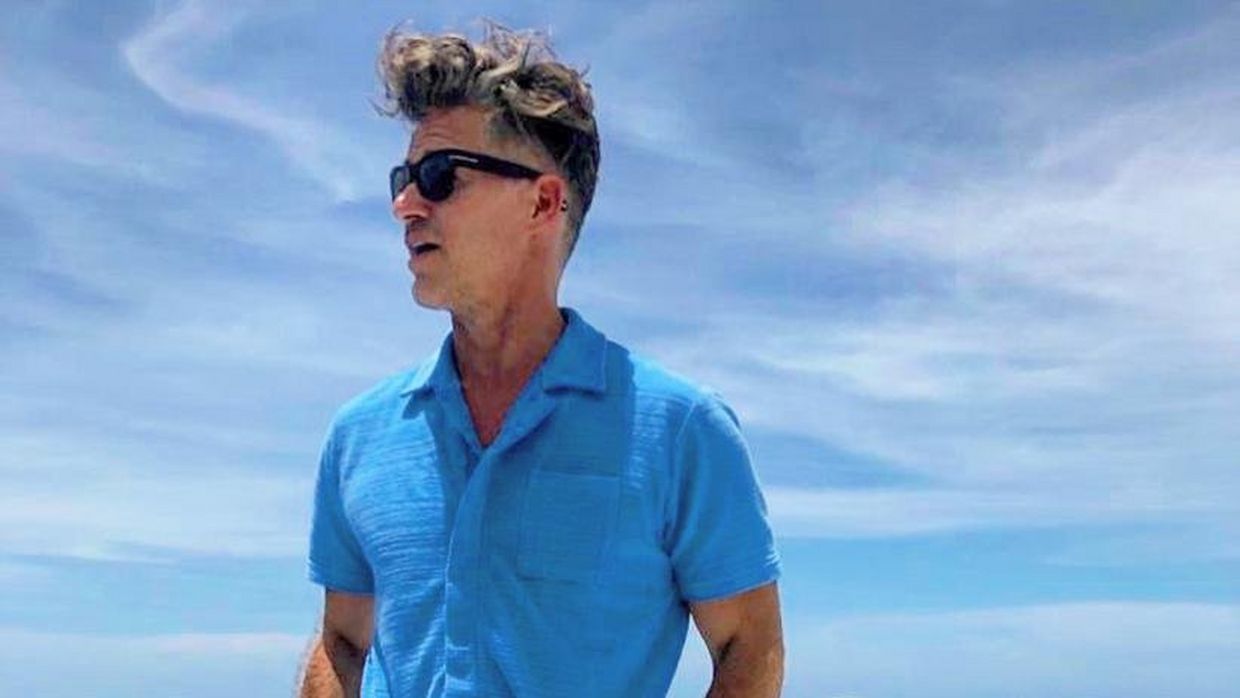
Social media has really changed the experience of growing up gay. When I was growing up, gay role models were on TV and film. That was good, but those people were distant figures. Social media has made people more directly available and allowed people to find support networks. It means that if you live in a small town, you are never entirely alone. It also allows us to be better advocates. We have seen how useful it is as a tool to make marginalised voices heard. It has been important during the Black Lives Matter movement and in the fight for trans rights.
When I travel, I am conscious of being gay. If you’ve ever had someone call you a “faggot”, or a “puff”, or another derogatory remark, you carry it with you. So, when I go somewhere, and maybe it is a place where the people are older and more traditional, I brace myself a little. Two older guys travelling together to a stereotypically heterosexual place can sometimes lead to a raised eyebrow or comment. But what is different between me when I was younger and now is that today I have the internal resources to withstand anything that anyone can say. I have the ability to occupy a space with who I am and not worry about it; whether I am in a small town in the US or anywhere in the world. I suppose that is what Pride means for me today – to have no fear about occupying a space with who I really am.
One of the things I have become aware of more and more over the years is these cliques we have. Even when I first came out, there would be all these groupings based on body shape or race. This can develop into hierarchies – a weird class system – which needs to end.
Even though we have a long way to go, I am unequivocally hopeful that things will get better. I mean, I wouldn’t have expected an openly gay married man to run for president, but that was what we just had. Sometimes the pendulum swings towards progress and then back again. But when it comes to a stop, I think each time we have moved it just a little bit in the direction of progress. I have hope.
Sam Salter, 26
Salter is a dancer. Most recently he travelled the world in Sir Matthew Bourne’s production of Swan Lake.
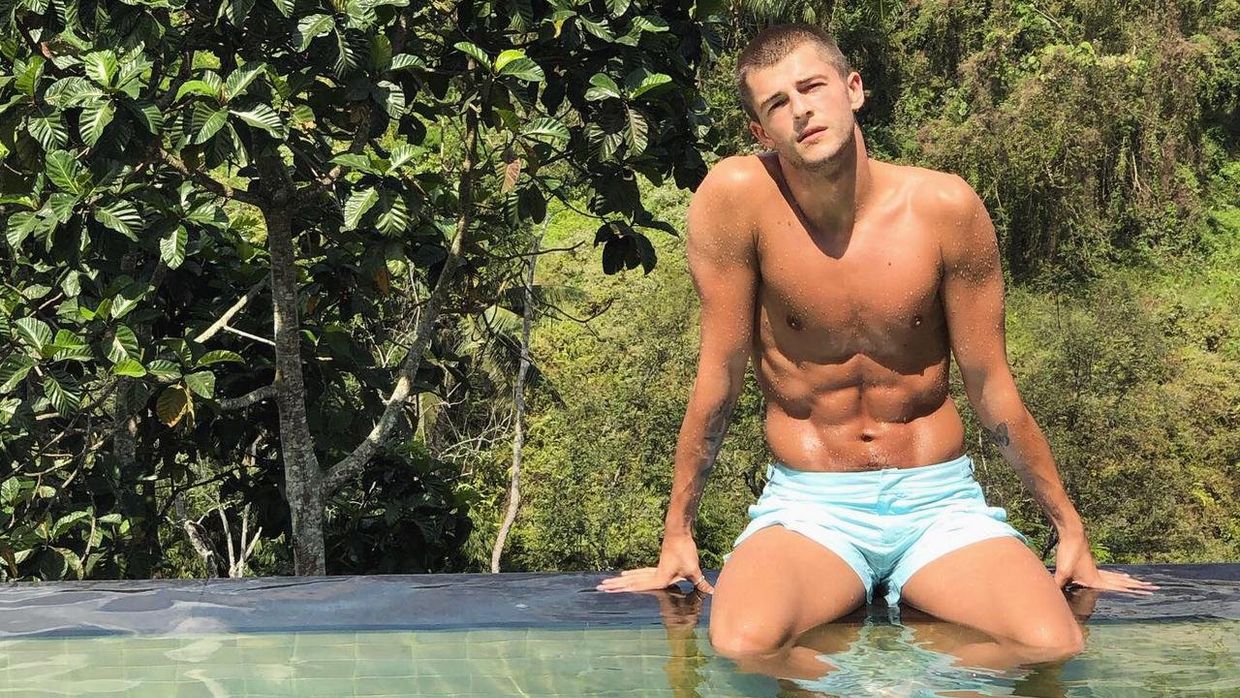
Years ago, my holidays were all about letting loose. It was like nothing was real for a week. You eat what you want and do what you want - a total dream world. But now I am sober; it is totally different. I have to think carefully about who I am travelling with and where I am going. I am supposed to be heading to Mykonos in September, which is obviously a big party place, but I am travelling with my other sober friend. He’s been clean a long time, and he’s amazing, so I feel safe with him. I can just chill and enjoy the rest. That’s why sometimes I travel by myself:I can do what I want and get to the beach for 10 am.
I am conscious of being gay when travelling, for sure. But, you know, even when we are on tour in the UK, I get shit from people for what I wear. I remember having a very tense holiday with my boyfriend in Dubai once. I remember we went to a waterpark and my friend had an underwater camera and Liam, my boyfriend at the time, tried to kiss me in the pool. I freaked out and said, “what are you doing?” It was definitely an anxious time. It is just so sad that we had to lie.
That said, I have had some absolutely lovely holidays with gay friends. Palm Springs was so fun. It wasn’t crazy at all, just really lovely - lots of going to bars sober and meeting new people.
In the last ten years, I think things broadly have got better, but we’re really not there at all. The other day, UNILAD posted this positive piece about a transgender couple having a baby, which was great. But then, I looked at the comments and oh my god! You dig a little bit below the surface, and there is all this unpleasantness there. It’s pretty frustrating to see. You just want to shake people sometimes.
Harry Alexander, 29
Alexander has danced with Julie Cunningham & Company since 2016. In 2017 he was awarded the ‘Best Emerging Artist’ at the Critics Circle National Dance Awards.
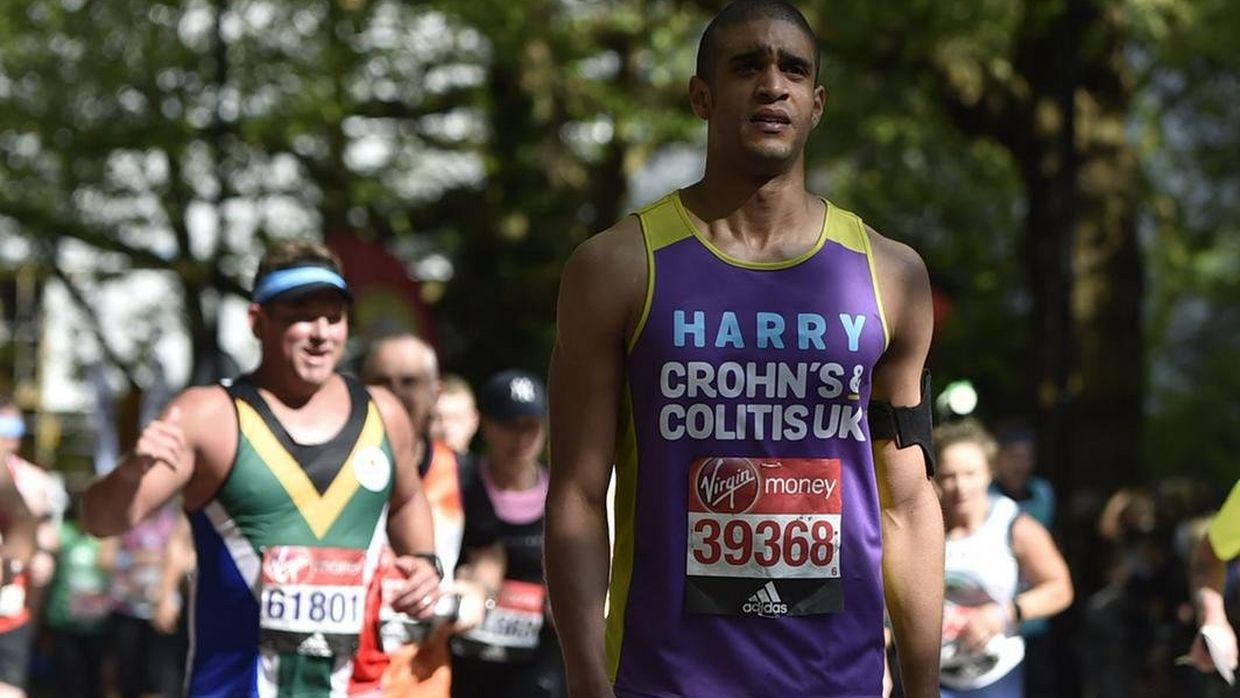
I was 21 when I came out, and it was pretty challenging. I’m still fighting about it with some family members now. Well, one person. During the time I’ve been out, I think London has improved for gay men. I feel I’m able to be what I am, as opposed to feeling guarded all the time. I don’t know if that’s my own personal journey or whether society is more accepting now. When I travel, however, I am quite conscious of being gay. I adapt my behaviour a little. I act “professional” rather than just completely being myself.
I’ve only had one bad experience. I was on tour with a dance company in Perth, Australia, and we all went out after work. I was wearing a pretty standard outfit for me - shorts and a tight T-shirt. I was walking along, and someone shouted “faggot”. I just didn’t know how to react, so I laughed it off. Then later in the week, three of my friends got attacked on their way home in Perth, and one ended up in A&E.
There is still a lot to be done inside and outside of the community, even today. The Trans Lives Matter campaign is super important to me. Hopefully, things are going in the right direction. But I mean, it’s 2020! We should be a lot further along than this. We should all be more engaged with making life better for trans people. The problem is, you go through your own struggles coming out and being accepted and then once that happens, it’s easy to think “I’ve had my troubles, and everything for me is great now” and therefore believe that the same is true for everyone. It’s definitely not. We need to not be blinded by that.
Juliano Corbetta, 41
Corbetta is the Editor-in-Chief and Creative Director of Made in Brazil Magazine and SAMBAZINE, a queer publication launched in São Paulo in October 2019.
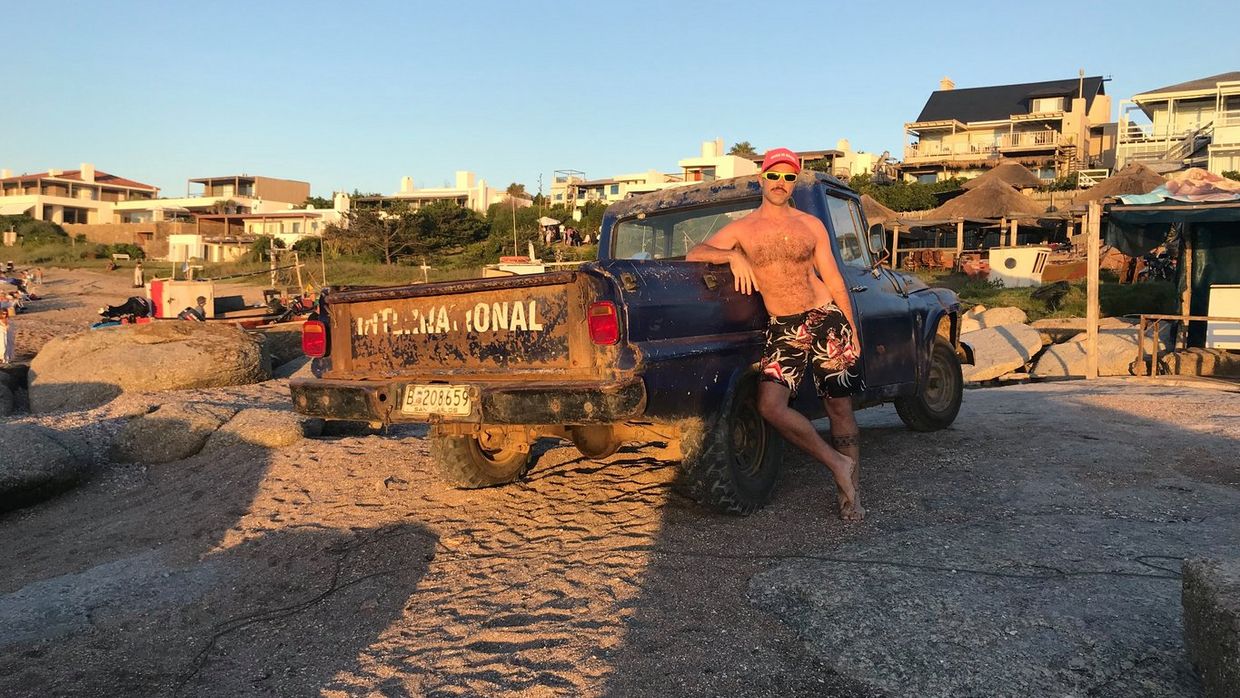
Twenty years ago, I wouldn’t have thought it would be possible for me to travel with my boyfriend and to walk into a hotel lobby holding hands. I couldn’t imagine a time when I could book a room with a king-sized bed and not have people look at me weirdly. But now it isn’t even something I think about much when I travel. For a long time, I didn’t have to think about my sexuality. It went by unnoticed. Only recently, with the political changes in Brazil, have I become aware of my sexuality again. I never thought that was going to happen in my life because we were moving forward. So now, sometimes I am a little bit more careful. Hate speech is spreading through my country, from the top down.
I decided recently to make myself a lot more visible and to speak out more because I felt all of a sudden, I had a responsibility again. I grew up with no gay role models in Brazil. So, I feel it’s important for me as a 41-year-old man to be out and proud.
I feel I’m carrying the torch, you know, and I feel like I have to carry it until I can pass it to a new generation. Very few singers or actors or really any role models in Brazil are openly gay, and that makes the world harder for people who don’t have that visibility to fight. I feel I have to make up for all the people who are not doing enough.
One thing that makes me happy is that this younger generation is much more political than my own. The pandemic and the isolation and the recession that’s coming from it now, has made people more sensitive and aggressive; I think it has brought a lot of ugliness. My hope is that every other gay person sees we have to push our agenda forward. Our agenda can go hand in hand with a lot of other pushes for rights in other communities.
Reviews
We would love to hear from you.
